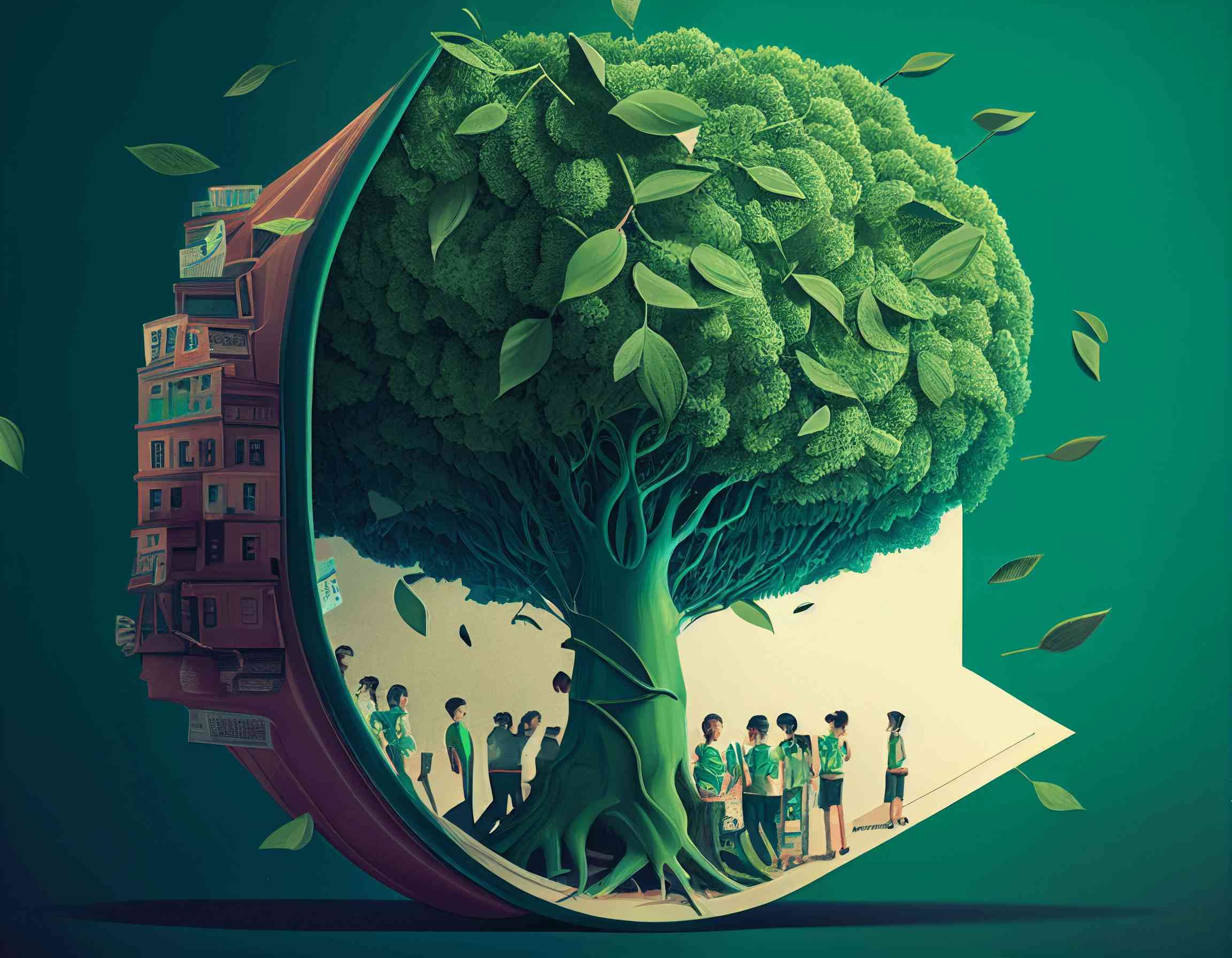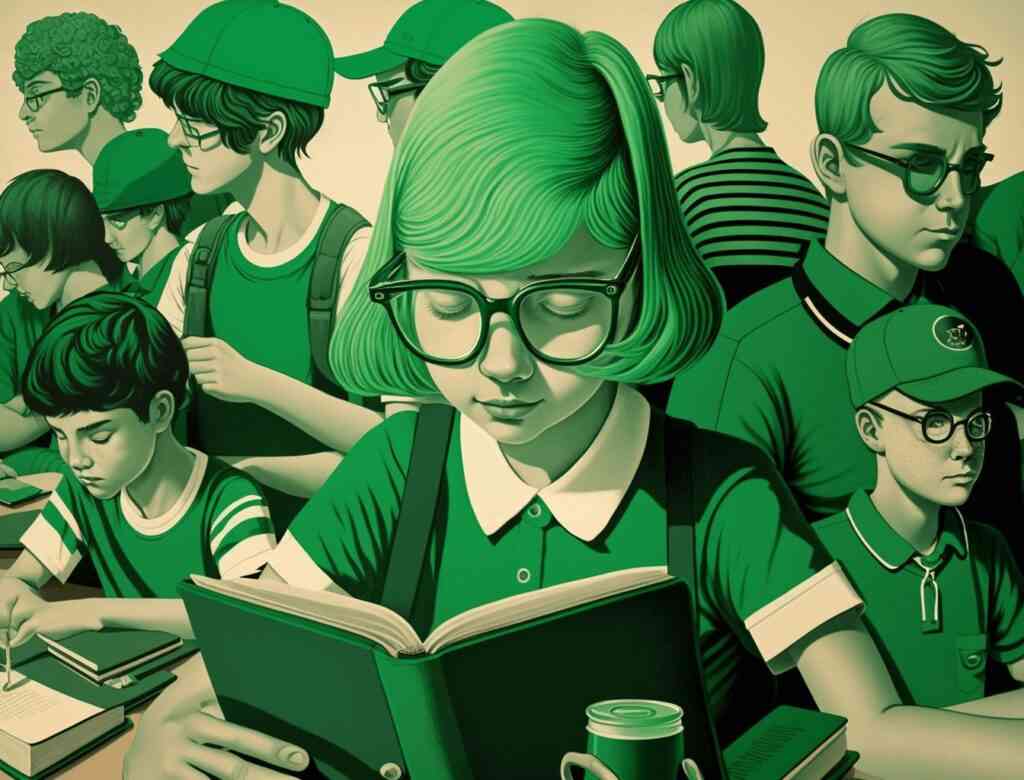Science
Hidden Depths: Thousands of Unknown Viruses Found in the Dragon Hole
16 February 2026

Numerous studies involving students, their parents, and teachers indicate an urgent need to focus both on the area of teaching content and also on formulating development goals, critical selection of content, and work methodology, the ability to assess achieved effects in the context of real benefits and of possibilities for their diverse application, and further developmental planning.
Key questions we seek answers for are “What should a school teach?” and “How should it do it?” Indications recommended by leading Polish organizations dealing with teaching practice and the development of student-learning processes, including Centrum Edukacji Obywatelskiej (the Center for Citizenship Education) and Fundacja Szkoła z Klasą (the School of Class Foundation), were organized to follow the adopted structure that on one hand systematized records concerning teaching techniques and methods and on the other assigned them to selected skills or specific subjects. In autumn 2020, the Holistic Think Tank also took up the challenge of the question “How to teach?” After multifaceted work carried out by many experts in various countries, the following list was created:
Read also:
Facing a challenge is discovering your development potential. This states the possibility to reach another milestone on the road to adulthood. When a student faces standard challenges school poses, this encourages them at most to memorize and recreate basic skills proposed by teachers. Much more interesting are very contemporary solutions. These include one devised by world-renowned technology and education expert Ruben Puentedura, a former Harvard lecturer who in 2010 developed the SAMR model, which defines several levels of technology integration in education, allowing for a better understanding of possibilities of using digital tools during learning. SAMR means:
The proposed model fits into Bloom’s taxonomy of achievements in an interesting way, which is popular in education, with the first level (A) translating into the basis of learning understood as knowing and understanding new concepts. Another element (A) allows the use of what the student has learned in typical school situations (questions, class work). Level M goes beyond the school standard and heads towards expected changes in education – it includes the practice of analyzing and assessing the usefulness of competences acquired by the student. The highest level, R, sets a path towards the key skill: the application of innovative or creative solutions.
As a result, by applying the set of objectives of educational activities above, students will be able to learn about any new content while practicing its use in very diverse situations. Meanwhile, thanks to the assumption that learning isn’t about memorizing, but about processing content, students will develop more rapidly and more broadly.

Maintaining an active relationship with the world, nature, and your own body is a challenge that’s of particular importance for building a responsible attitude. It’s a significant aspect of learning to live in harmony with nature, including an organism’s reactions and consequences of actions students chose and undertake. In this context, it’s worthwhile to refer to solutions named in the acronym STEAM, though STREAM may be a more adequate term, which are:
The STREAM principle is mainly about organizing the learning process – according to the principle of sustainable development, we can learn something and keep it when we follow the principle “think globally, act locally.” This slogan is very popular in circles dealing with pro-ecological activities. A good way to prepare for locating and strengthening this type of attitude is work with the use of the STRAM model, which is mainly based on students’ active work, who are applying team, workshop, and other endeavors, often conducted using the educational-project method.
Competences that are being particularly positively viewed and expected by teachers and students are learning skills. These competences should be treated not as a set of simple techniques or methods of work, but rather as a kind of attitude involving the desire to engage in lifelong learning and the consequences of this process, among others. The starting point is respect for learning achievements and analysis of information sources.
It is crucial to organize the learning process, so it allows one to uncover gaps in knowledge and set optimal development goals for individual students. It’s also important that such choices are autonomous and allow one to search for knowledge and experiences that verify proposals by others and enable personal decisions optimal for life, development, or career to be made.
Challenges determining students’ social positions are conditioned by natural developmental aspects. A series of guidebooks written under the direction of Prof. Anna Izabela Brzezińska describe the social functioning of children as a process. Starting from early school education:
It is the most important phase from the point of view of the child’s social development. Starting school education involves significant changes in their social environment and, consequently, also in the way they function. The nature of the relationships that a child establishes at this stage of development largely shapes the course of their further life in the context of relations with other people, cooperation skills, and attitude towards work.
Students’ socialization processes are best activated by the specificity of the organization of classes. Specifically, in this context, it’s worth encouraging continuous strengthening of students’ co-responsibility for the learning process and reducing the direct burden of teachers’ responsibility in this. Of course, this increases responsibility on the teacher for the development of students’ intellectual maturity, strengthens the need and practice of acquiring knowledge in cooperation with others, and fosters the formation of skills of independent processing and information selection.
Living in a “global village” with widespread access to highly diverse information and expanding autonomy in media choice results in increased independence. The key challenge for schools in this area is to strengthen awareness of effects that student choices make, especially in the context of threats caused by the influence of the internet and the broad field of media providing knowledge and even creating attitudes.
A significant challenge is the willingness and ease with which kids, especially teenagers, use various signs and codes regulating the transmission of information. This concerns all forms of street art, rap, and various individual or group provocations. In most cases, it’s about looking for one’s expression. These actions are often good fun yet at the same time are a way of presenting one’s values or personal descriptions of selected aspects of reality.
The final thing to address in this area is the analysis of “youth language.” What seems particularly valuable is engaging in dialogue with students about causes and forms of creating methods of communication they’re currently using. These display identifiable constructs of the language of communication and allow one to identify social mechanisms that often illustrate in a very nonobvious form current attitudes, choices, and values determining the behavior of contemporary teenagers.
The functioning of administration, school, and teachers should enable students to benefit directly from the advantages of a democratic state. This means that the student should have full autonomy of choices being made in accordance with solutions adopted in the school. Autonomy, the right to speak, participation, and gathering supporters for one’s cause are basic attributes in an environment that’s building proper relations with each level of authority. Valuable tools worth employing are basic communication skills, activities related to various forms of school or class representation, and mediation procedures.
Entrepreneurship is an attitude “wrapped” in skills, which is associated mainly with starting an economic activity. However, its immanent features are closely related to competences in the area of learning and working on one’s development. It’s all about precise analysis of needs, weighing resources and opportunities, defining objectives and ways of acting, gathering necessary support, consistent actions, determining results achieved, and the ability to overcome a crisis with strength.
The key aspect of entrepreneurship is progression. Education serves the same purpose: systematic efforts by teachers and students aimed at successively achieving the next stages of development, which expand the possibilities of acting in accordance with other goals, positioned higher and higher. The period of school and education must ensure the possibility of relatively safe exploration and experimentation in areas of the activities provided, to result in surpassing successive thresholds in maturation.
The key area of effective learning is conversation. Learning is largely acquiring and experiencing new meanings, accumulating one’s vocabulary concerning various fields of knowledge and life activities. It’s worth building it in accordance with the principles of constructivism, in which these four challenges come to the fore:
Exploratory (revealing) speech is a form of thinking loudly, talking about what one is doing, what we’re going to achieve, what happened, how we feel about it all, and what’s ultimately come about as a result of our actions. This is facilitated by peer learning, work performed together with people of the same age, who are similarly calling upon what is yet unknown, describing and illustrating what will become the result of the work being done, and who can draw attention to mistakes made while also confirming results obtained.
Mistakes in the learning process are a key tool of development. Every mistake we’re aware of means surmounting the next threshold of unconscious incompetence, entering the area of conscious incompetence, and being able to retrace the path to acquire unconscious competence. This is how we learn.
The school should focus on recognition and development needs. Students should derive satisfaction and appreciation from attending classes. As a result of learning, they should strengthen the need for continuous development, foster the imperative to work on themselves following the principle of lifelong learning, and focus on subsequent goals and actions aimed at achieving this.
For this to happen, however, it’s necessary to take action in school to meet the remaining needs. Physiological needs include issues of space, its functionality, aesthetics, and access to light and fresh air. All this should be taken care of by the school. The issue of safety arises as a guarantee of the right to make mistakes, the limitation – or, better, elimination – of having to make assessments, and growing beyond any grounds for exclusion.
The ability to “learn” becomes crucial for the individual. It allows for maintaining high-quality competences, continuous improvement, and thereby the acquisition of another competence, that is, employability. What should be of crucial importance in education, in general, is growing beyond the accumulation of knowledge, in favor of its continuous renewal.